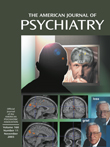Maternal Smoking During Pregnancy and Attention Deficit Hyperactivity Disorder Symptoms in Offspring
Abstract
OBJECTIVE: The aim of this study was to examine whether smoking during pregnancy is associated with symptoms of attention deficit hyperactivity disorder (ADHD) in offspring and whether these effects are additional to genetic influences. METHOD: Children’s ADHD symptoms (parent- and teacher-rated), maternal smoking during pregnancy, conduct disorder symptoms, and family adversity were assessed with questionnaires for a population-based sample of twins (1,452 twin pairs 5–16 years of age). RESULTS: Although genetic influences accounted for most of the variance in offspring ADHD, maternal smoking during pregnancy was still found to show a significant environmentally mediated association. Maternal smoking remained a significant influence when other potential confounds were taken into account. CONCLUSIONS: Maternal smoking during pregnancy appears to show an association with offspring ADHD symptoms that is additional to the effects of genes and not attributable to shared rater effects, clinical referral biases, or covariation with antisocial behavior.



